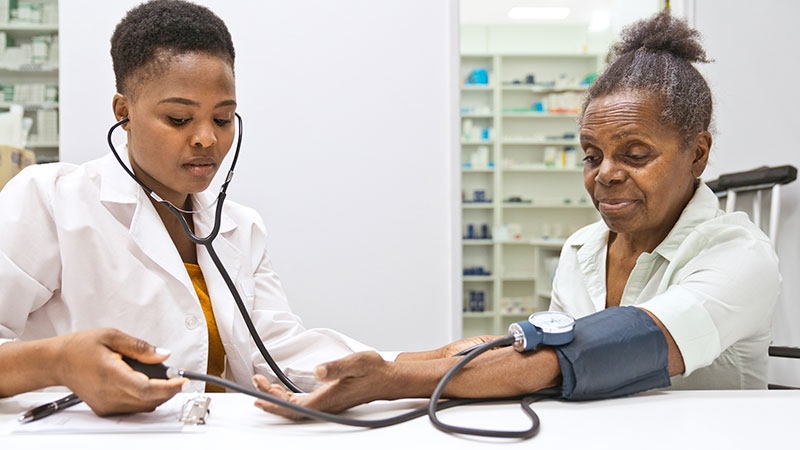Failure by the Government to provide equal healthcare for all had left exhausted primary care staff facing a "tsunami" of pent-up demand because of COVID-19, GPs were warned today.

Rebecca Malby, professor of health systems innovation at London South Bank University, urged the Government to shift focus to planning for the aftermath of the pandemic. Her comments came during a question and answer session on day 2 of the RCGP's 'A Fresh Approach to General Practice' virtual conference where panellists were asked whether primary care had delivered on the vaccination programme.
"It's delivered massively," said Prof Martin Marshall, chair of the RCGP, who called it "perhaps one of the few success stories that we've experienced in the last year".
He said that of the 14 million vaccinations to date, 75% had been delivered from GP clinics, despite the pressures of other work.
"We've got some new challenges ahead, I guess, particularly around continuing to deliver business as usual at the same time as whatever the future of the vaccination programme might look like.
"But right now I think we should really be celebrating what we've achieved."
Prof Malby said that while the NHS was delivering on the vaccination programme, the Government's record did not hold up as well.
"The Government's job is to make sure that children aren't hungry and cold, that they're not severely affected by the pandemic," she said. "So, I'm more interested in the Government focusing on the 'upstream' issues that it's their role to sort, because the tsunami of demand that's coming into general practice, particularly around young people, is absolutely shocking, if you're looking at eating disorders, self-harm, mental health in young people.
"So, I'd like the Government to focus on its job, and to let the NHS do its job."
Pandemic Management and Economic Recovery 'Go Hand in Hand'
She said that the challenge now was to "face up to how complicit we've been in not providing universal healthcare in this country", particularly in relation to deprived communities and the 7 to 24-year-olds who were not coming into general practice.
"Some young mums have to get three buses to get their three or four kids to an appointment somewhere else that's been determined by the NHS as the place they have to go. We can't keep delivering on our terms, and that includes general practice."
Too many people were "falling through the cracks", she said.
"We've got to work out what is primary care, and where should it be delivered and how, because if 40% of the people turning up in primary care frequently are doing so because they're struggling with life, and in poverty, then sticking plastering it with a GP appointment is not solving the problem."
'Medicalising Poverty'
Christiana Melam, chief executive of the National Association of Link Workers, said social prescribing could help in "removing the barriers" to these groups accessing health care.
"It's not just patching people up. Somebody needs to get to the root cause of the problem, otherwise they keep going round and round in circles," she said.
"We need to be empowering the population and empowering people to take control of their health and wellbeing. People are not just poor – they lack resources, they need somebody to help get them out of poverty."
Prof Malby, who said she had spent Wednesday packing free school meals food parcels with fruit and vegetables, said doctors had "a professional duty to stand up for these folk", rather than complying with a system of "medicalising poverty".
Prof Marshall called for a larger proportion of health service funding to be spent on primary care.
He said: "The real touchstone for whether we understand the importance of primary care is what proportion of the NHS budget is spent on primary care, and over the last two or three decades that's dropped, and it continues to drop. It's down around 9% now.
"Really good effective integrated care systems spend 20 to 25% of their total budget on primary care. That's the kind of figure that we need to be looking for."





